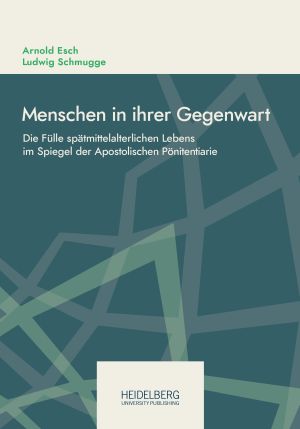How to Cite
License (Chapter)

This work is licensed under a Creative Commons Attribution-ShareAlike 4.0 International License.
Identifiers (Book)
Published
Spätmittelalterliches Umgangslatein. Direkte Rede und empfundene Sprache in den Pönitentiarie-Suppliken
Abstract The requests for absolution or dispensation, addressed to the pope and registered by the Penitentiary, always had to contain a detailed account of the case involved at the beginning. To lend this narratio more credibility at the tribunal, the petitioners or their procurators sometimes added spoken Latin in direct speech, particularly affective language like insults, phrases, snatches of conversation, threats, curses, blasphemies etc. in deliberately crude, nonCiceronian expressions („It’s easy for you to talk!“, „I’ll wind your guts out of your belly!“, „If I knew that I had to get out of bed for such a lousy mass, I certainly wouldn’t do it!“, „He can get stuffed!“). Of course, the phrases presented here (with translations in German) are in almost all cases uttered in the native tongue and translated into Latin by the procurator and are thus not protocolled speech, but reconstructed speech. But they are still colloquial Latin of the Late Middle Ages.






